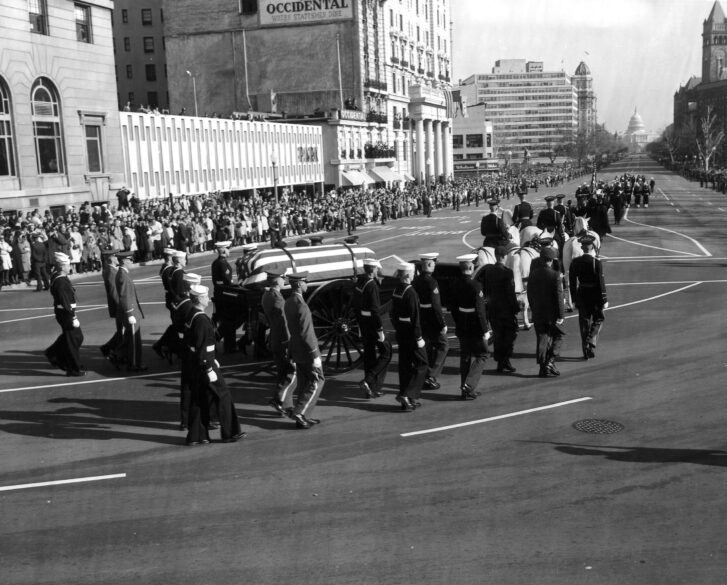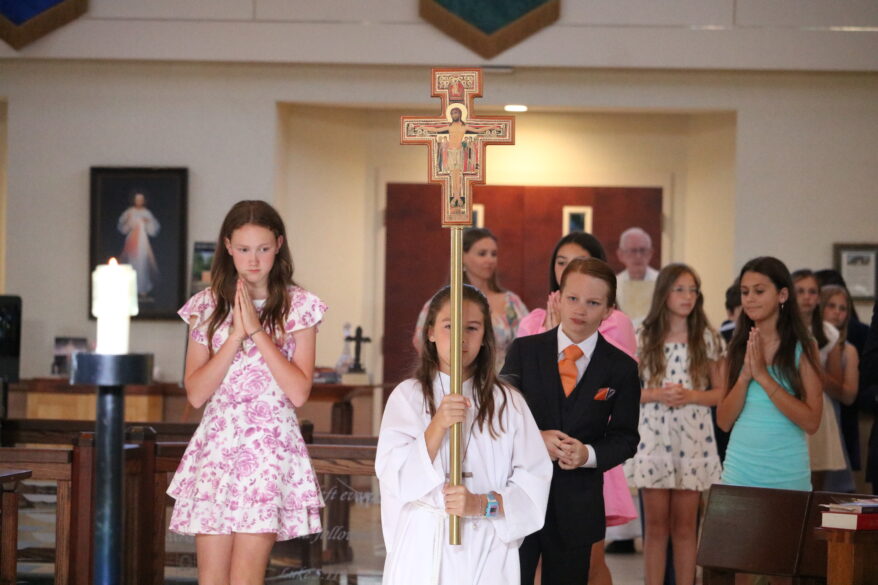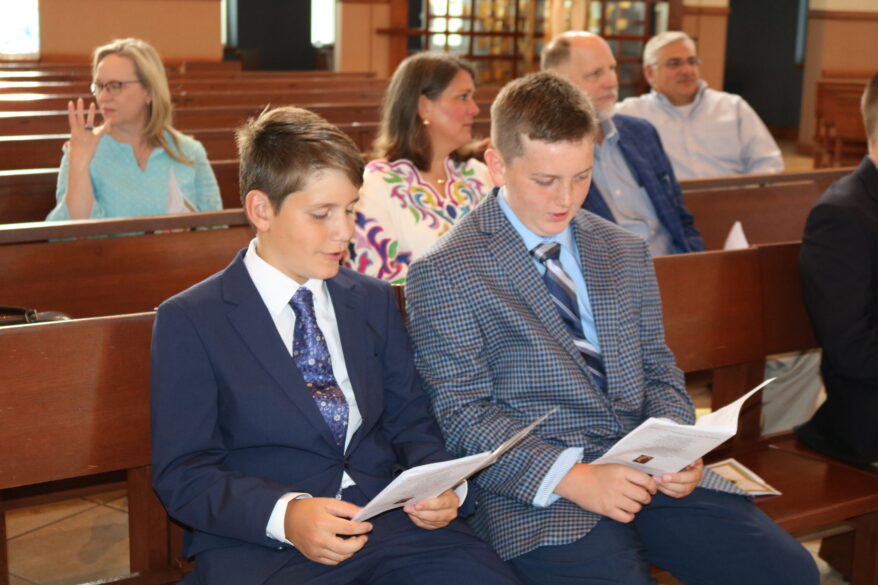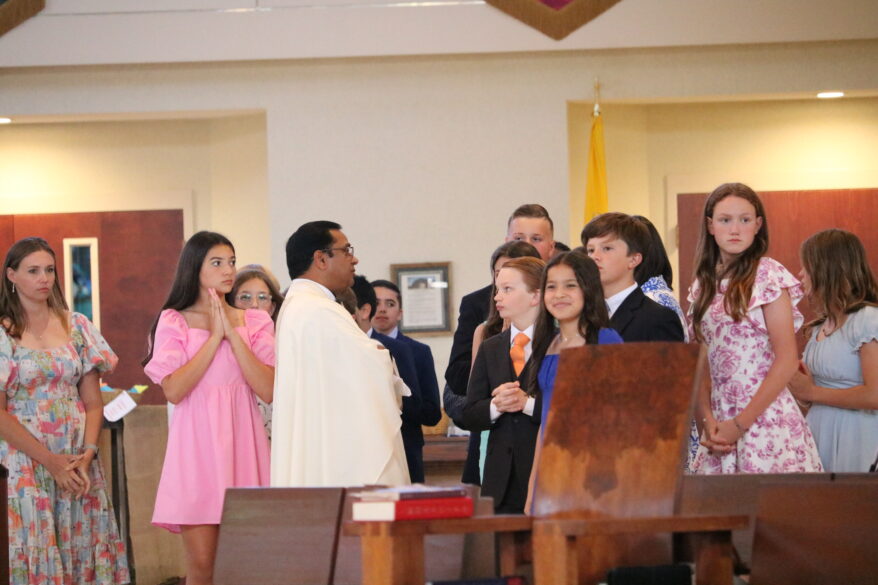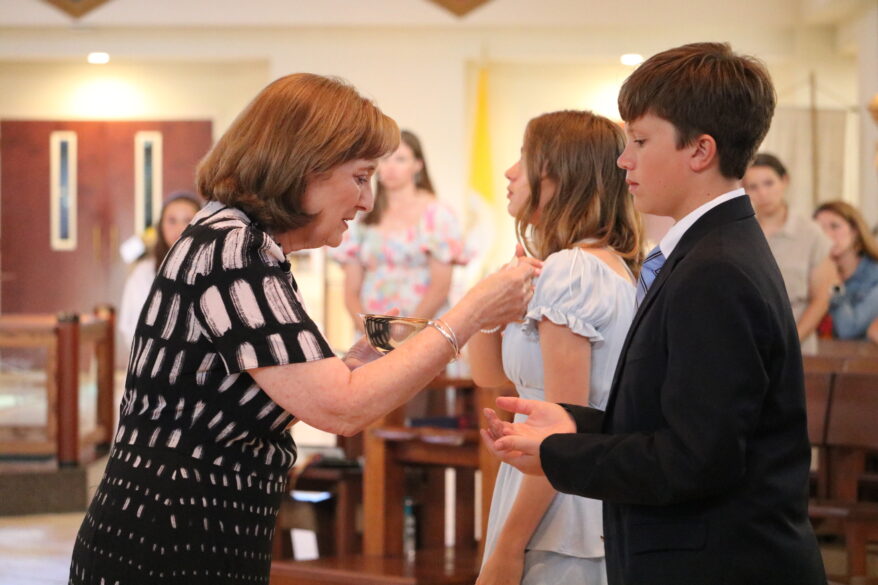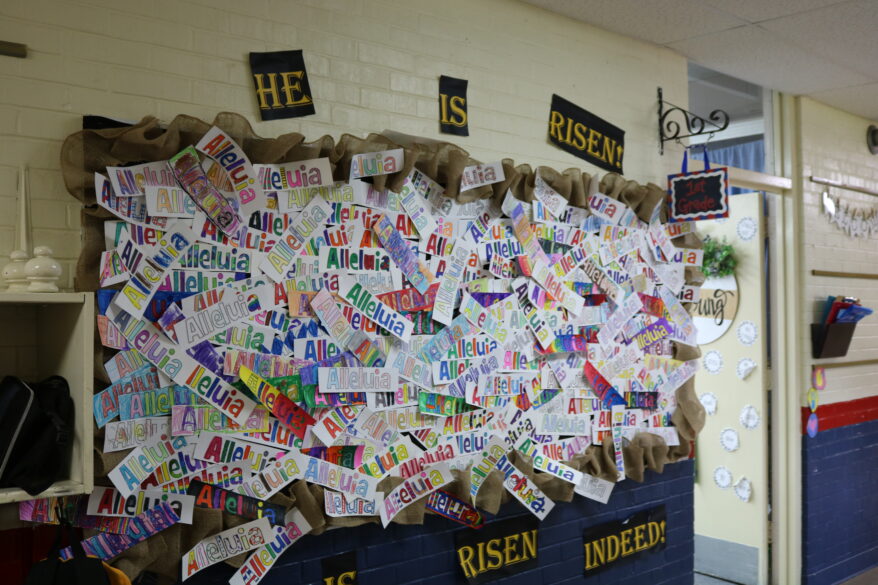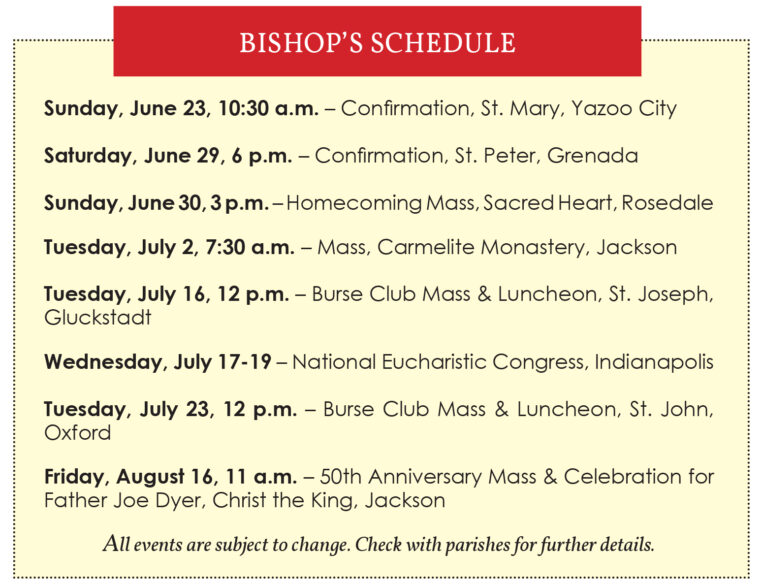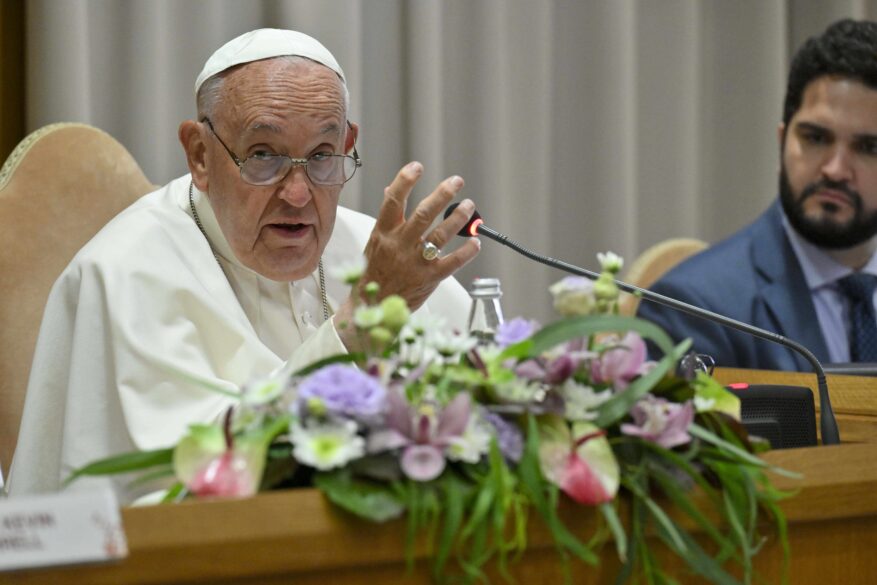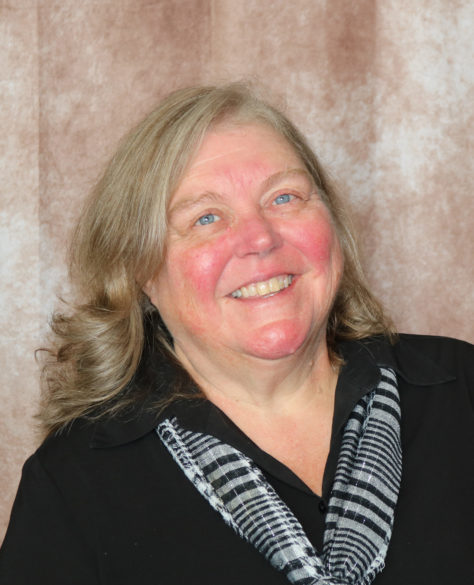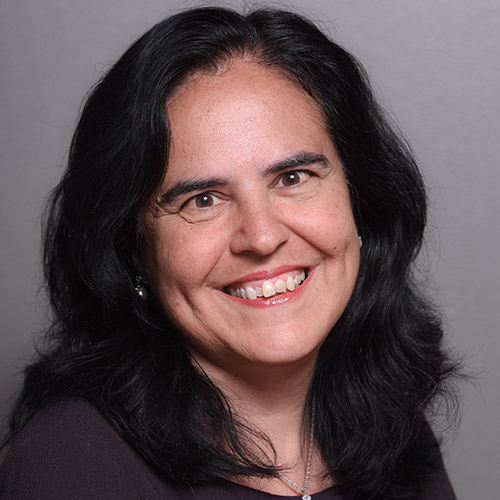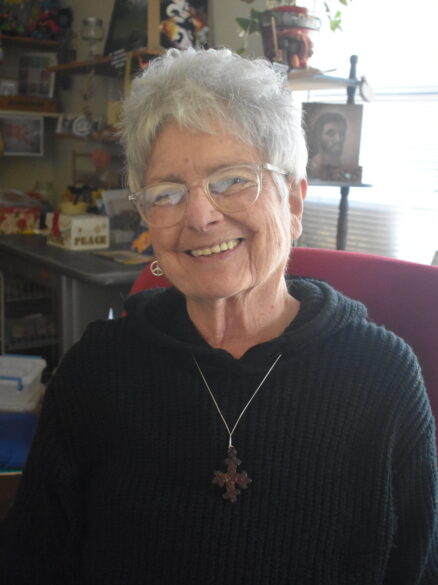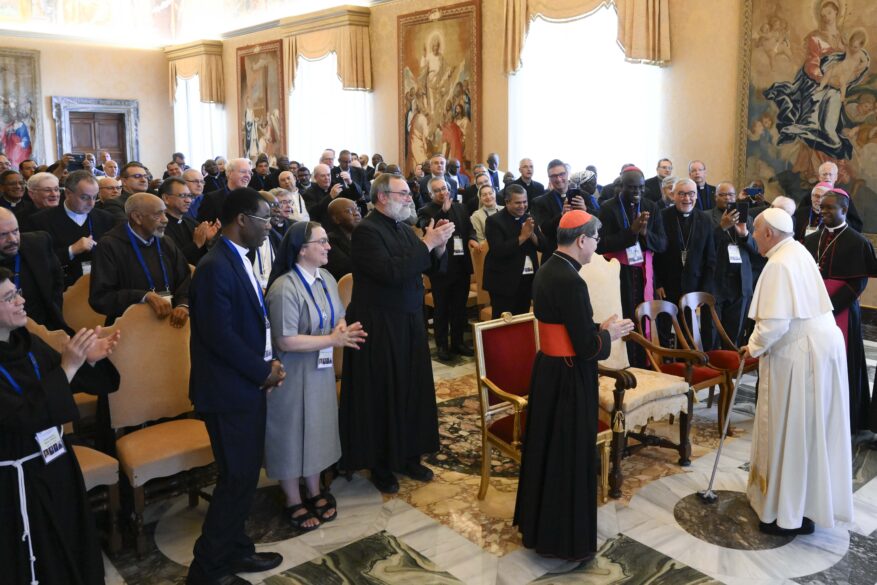By Joe Lee
MADISON – The blast furnace heat made quite an impression on Msgr. Michael Flannery, known as Padre to parishioners all over Mississippi and the impoverished Saltillo region of Mexico, when he landed in Jackson for the first time in September 1964.
The racial discord also made a significant impression. Flannery arrived shortly after the horrific murders of civil rights leaders Andrew Goodman, Michael Schwerner and James Cheney in Neshoba County.
“My first assignment was St. Mary’s in west Jackson,” said Flannery, who celebrates the 60th anniversary of his priest ordination on June 14. “The school was integrated the morning after I arrived. A Black family had a little girl entering kindergarten, and there was a big demonstration. We feared Klan violence and left the lights on overnight for two weeks, but nothing came of it.
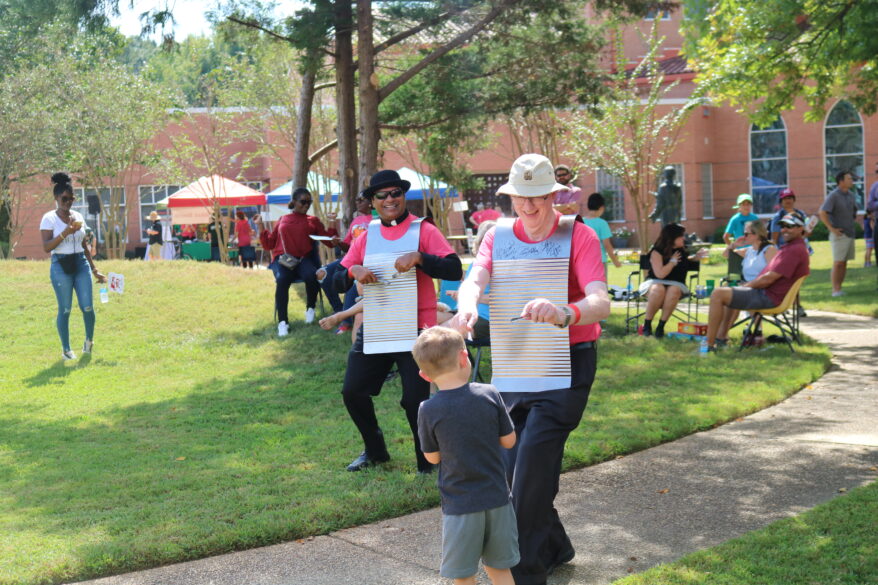
“A professor at seminary prepared us to face difficulty in the U.S. but said it wouldn’t be fair to tell us what to do. He said, ‘I’ve given you moral principles. You apply them to the situation you find yourself in.’ That made an impression on me.”
Assigned to Our Lady of Victories in Pascagoula in 1967, Flannery organized the first Catholic Youth Organization (CYO) group to deliver items to Saltillo, but the game-changer was the involvement of Father Patrick Quinn. Saltillo Mission, Flannery’s book about the long-running service project that sent more than 20,000 Mississippi youth to Mexico, was published in 2017.
“Father Quinn had a tremendous love for the poor,” Flannery said. “One year he was seriously injured in a car accident on a slick mountain road, and Bishop Brunini wanted his medical treatment done in Mississippi. Quinn initially refused, saying he would receive care unavailable to the poor. He eventually agreed to it, but only if he could return to Saltillo once healthy.”
Valerie Balser Winn, accompanied her CYO from St. Alphonsus in McComb to Saltillo in 1973.
“Father Flannery always seemed full of energy and laughter as he drove a crowded jeep among the prairie dogs and cacti for what seemed like hours,” Winn said. “He supervised the deliveries of medicine, dental care and balloons for the children.
“Not knowing Spanish myself and watching him tell those gathered for Mass in the tiny brick and mud huts about Father Quinn’s accident … I can still see the shock and sadness in their faces. Then I saw them comforted with Father Flannery’s message of hope.”
Flannery’s mastery of Spanish led to his assignment to Rosedale, one of several Delta towns where he worked primarily with migrants. While in Cleveland he was asked by Bishop Brunini to learn canon law. Finishing at St. Paul’s in Ottawa, Canada, in 1985, Flannery was brought into the tribunal after returning to Mississippi, serving as judicial vicar.
“I see the tribunal as a healing ministry,” he said. “Divorce is a very painful thing, as part of you dies in that process. My experiences in Saltillo, with a lot of people suffering there, got me interested in the tribunal.”
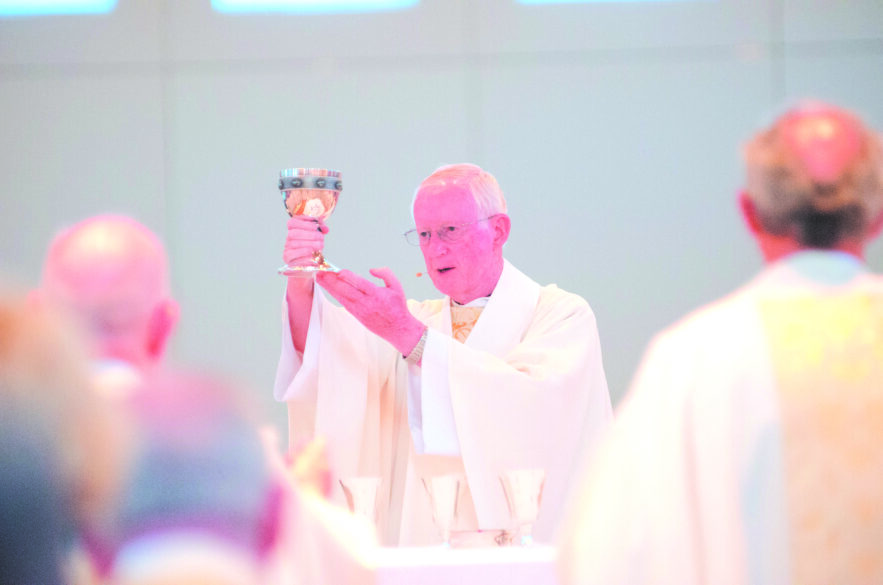
The vicar general at the time was Father Francis Cosgrove, a fellow Irishman and a good friend of Flannery’s. Cosgrove would be assigned to St. Francis of Assisi in Madison in 1994, and Flannery was named vicar general. When Cosgrove was sent to Meridian in 2005 to pastor at St. Patrick, Flannery was moved to St. Francis.
“Father Cosgrove built the church, which was dedicated in 2000,” Flannery said. “I was glad to get back to parish ministry, my first love. The initial plan was for St. Francis to have a church, a family life center and a school. The first two had been taken care of by the time I got there.”
When a diocesan survey showed great support for another Catholic school in the Jackson area, Flannery went right to work. St. Anthony opened in Madison in 2009, and enrollment has tripled in 15 years.
“Father Mike’s generosity to St. Anthony is a matter of record,” said St. Francis parishioner Ed Marsalis. “I love him dearly. He is a best friend, a true theologian. He continues the mission he was given that graduation day in Ireland and performs weekly masses in our parish and throughout the diocese.”
Msgr. Elvin Sunds compares his friend of half a century to the Good Shepherd in giving his all for his sheep. Father Albeen Vatti, St. Francis pastor since 2015, delights parishioners by routinely bantering with Flannery but has a deep respect for him.
“He’s always willing to help and lives a very simple lifestyle,” Vatti said. “Following him was challenging because of his years of experience, but he has been a great blessing to me.”
Now in his early eighties, Flannery shows no signs of slowing down. He visits St. Anthony often during the school year to entertain young Eagles, and he’ll fill in at parishes all over central Mississippi during the scalding summer months. He wouldn’t be anywhere else.
“I’ve been happy as a priest,” he said. “It has been a good life, a joyful life, and I would do it again.”

